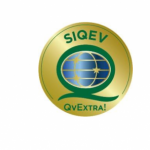Managing cholesterol levels and blood pressure is essential in preventing cardiovascular disease—one of the leading causes of death worldwide. In this context, polyphenols and omega-3 for cholesterol and heart health stand out as powerful, natural allies that work together to support your cardiovascular system.
How polyphenols in EVOO help reduce cholesterol
Extra virgin olive oil (EVOO) contains not only healthy oleic acid, but also powerful polyphenols—natural compounds with strong antioxidant and anti-inflammatory properties. These polyphenols help prevent the oxidation of LDL cholesterol, a key factor in the development of heart disease.
They also improve endothelial function, reduce vascular inflammation, and regulate lipid metabolism, contributing to lower LDL (“bad”) cholesterol and higher HDL (“good”) cholesterol levels.
Omega-3 and polyphenols: a heart-healthy combination
Omega-3 fatty acids, found in fatty fish, nuts, and berries, are known for their cardioprotective effects. They help lower triglycerides, enhance arterial flexibility, and reduce blood pressure. When combined with polyphenols from EVOO, their anti-inflammatory action is even more effective.
This synergy between polyphenols and omega-3 for cholesterol reduction and cardiovascular protection targets critical mechanisms such as oxidative stress, inflammation, and endothelial dysfunction.
Mediterranean diet: a natural strategy for cholesterol and blood pressure
Following a Mediterranean diet rich in high-quality EVOO—especially oils certified with the SIQEV seal (guaranteeing at least 200 mg/kg of polyphenols)—and pairing it with an adequate intake of omega-3, is a natural and science-backed approach to controlling cholesterol and hypertension.
Choosing certified EVOOs like those from QvExtra! makes it easy to bring the benefits of polyphenols and omega-3 for cholesterol and heart health into your daily routine.
Bibliography
George, E. S., Marshall, S., Mayr, H. L., Trakman, G. L., Tatucu-Babet, O. A.,
Lassemillante, A. C. M., … & Marx, W. (2019). The effect of high-polyphenol extra virgin
olive oil on cardiovascular risk factors: A systematic review and meta-analysis. Critical
reviews in food science and nutrition, 59(17), 2772-2795.
Godos, J., Vitale, M., Micek, A., Ray, S., Martini, D., Del Rio, D., … & Grosso, G. (2019).
Dietary polyphenol intake, blood pressure, and hypertension: a systematic review and
meta-analysis of observational studies. Antioxidants, 8(6), 152.
Harper, C. R., & Jacobson, T. A. (2003). Beyond the Mediterranean diet: The role of
omega‐3 fatty acids in the prevention of coronary heart disease. Preventive
Cardiology, 6(3), 136-146.
Jain, A. P., Aggarwal, K. K., & Zhang, P. Y. (2015). Omega-3 fatty acids and
cardiovascular disease. Eur Rev Med Pharmacol Sci, 19(3), 441-5.
Scoditti, E., Capurso, C., Capurso, A., & Massaro, M. (2014). Vascular effects of the
Mediterranean diet—Part II: Role of omega-3 fatty acids and olive oil
polyphenols. Vascular pharmacology, 63(3), 127-134.
Wang, C., Chung, M., Lichtenstein, A., Balk, E., Kupelnick, B., DeVine, D., … & Lau, J.
(2004). Effects of omega‐3 fatty acids on cardiovascular disease: Summary. AHRQ
evidence report summaries.
Yam, D., Bott-Kanner, G., Friedman, J., Genin, I., Klainman, E., & Shinitzky, M. (2002).
Omega-3 fatty acids reduce hyperlipidaemia, hyperinsulinaemia and hypertension in
cardiovascular patients. Journal of Clinical and Basic Cardiology, 5(3), 229-231.







